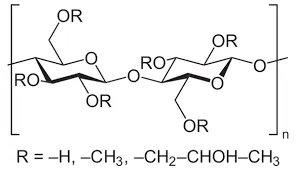
Sep . 07, 2024 15:42 Back to list
Hydroxyethyl Cellulose (HEC) - Versatile Thickening Agent and Stabilizer
Understanding Hydroxyethyl Cellulose (HEC) Properties and Applications
Hydroxyethyl cellulose (HEC) is a non-ionic, water-soluble polymer derived from cellulose, widely used in various industries due to its unique properties. It is synthesized by the etherification of cellulose with ethylene oxide, which modifies its structure and enhances its solubility in water. This modification results in a versatile product with diverse applications, particularly in construction, food processing, pharmaceuticals, and personal care products.
Understanding Hydroxyethyl Cellulose (HEC) Properties and Applications
In the food industry, HEC serves as a stabilizer and thickening agent. It is commonly used in products like sauces, dressings, and dairy products to improve texture and mouthfeel. Additionally, HEC plays a role in maintaining the shelf life of food products by preventing separation and promoting uniform consistency. Its status as a Generally Recognized As Safe (GRAS) substance by the FDA allows its use in various food applications without health concerns.
hec hydroxyethyl cellulose

Pharmaceutical formulations also benefit from HEC’s properties. It is used as a binder and thickener in oral drug formulations and as a coating agent in controlled-release systems. HEC promotes uniform drug delivery and enhances the stability of formulations, making it a valuable excipient in the pharmaceutical industry. Moreover, it is utilized in topical preparations, providing a smooth and hydrating texture that enhances the application experience for consumers.
In personal care products, HEC is often used in cosmetics and skincare formulations as a thickener and stabilizer. It helps to improve the texture and consistency of lotions, creams, and gels, providing a pleasant user experience. Its ability to retain moisture also makes it an effective ingredient in hydrating formulations, contributing to skin health and overall aesthetics.
Furthermore, HEC is biodegradable and non-toxic, making it an environmentally friendly choice compared to synthetic alternatives. As sustainability becomes a significant concern across industries, the demand for natural and biodegradable ingredients like HEC is increasing. Its multifunctionality, combined with eco-friendliness, positions HEC as a valuable asset in developing innovative and sustainable products.
In conclusion, hydroxyethyl cellulose is a remarkable polymer with a broad range of applications across various industries. Its thickening, stabilizing, and binding properties make it indispensable in construction, food, pharmaceutical, and personal care sectors. As research continues to explore its potential, HEC is likely to remain a key ingredient in formulating effective, safe, and sustainable products for consumers.
-
Versatile Hpmc Uses in Different Industries
NewsJun.19,2025
-
Redispersible Powder's Role in Enhancing Durability of Construction Products
NewsJun.19,2025
-
Hydroxyethyl Cellulose Applications Driving Green Industrial Processes
NewsJun.19,2025
-
Exploring Different Redispersible Polymer Powder
NewsJun.19,2025
-
Choosing the Right Mortar Bonding Agent
NewsJun.19,2025
-
Applications and Significance of China Hpmc in Modern Industries
NewsJun.19,2025







